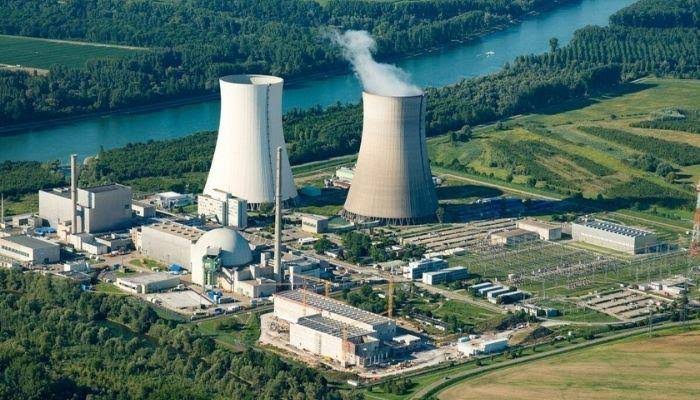Hauwa Ali
In Nigeria, the hum of generators is as common as the chirping of birds at dawn. For many, especially in bustling cities like Lagos and Abuja, the day begins not with the flip of a switch but with the roar of a generator. This reliance on self-generated power underscores a persistent issue: the national grid’s inability to provide consistent electricity.
Amidst this backdrop, the Nigerian Atomic Energy Commission (NAEC) has proposed a bold solution: the integration of nuclear energy into the country’s power mix. With feasibility studies conducted for potential sites in Geregu, Kogi State, and Idu, Akwa Ibom State, the vision is to establish nuclear power plants capable of generating approximately 1,200 megawatts. NAEC’s acting Chairman, Anthony Ekedewa, emphasized that nuclear energy could serve as a stable base load for the nation, addressing the chronic power shortages that have long plagued Nigeria.
Nigeria isn’t alone in its pursuit of nuclear energy as a solution to power deficits. Countries like France derive about 70% of their electricity from nuclear power, showcasing its potential for large-scale, reliable energy production. Similarly, the United States, with its vast network of nuclear reactors, has demonstrated the role of nuclear energy in supporting a diverse and resilient power grid.
These international examples highlight the feasibility of nuclear energy, not just as a theoretical concept but as a practical solution to energy challenges.
The opportunities of nuclear power Include:
Stable Base Load Power: Nuclear power plants can provide a continuous and reliable energy supply, essential for industrial activities and economic growth. Low Greenhouse Gas Emissions: Nuclear energy produces minimal carbon emissions, aligning with global efforts to combat climate change.
Energy Diversification: Incorporating nuclear power diversifies Nigeria’s energy mix, reducing dependence on fossil fuels and enhancing energy security.
Long-Term Cost Efficiency: While initial capital costs are high, nuclear plants have long operational lifespans, offering cost-effective energy over time. In the Nigerian context, the challenges of a nuclear power may include:
High Capital Investment: The construction of nuclear power plants requires substantial financial resources, which may strain the country’s budget.
Regulatory Framework: Establishing a robust regulatory and safety framework is crucial to ensure the safe operation of nuclear facilities.
Technical Expertise: Developing and retaining skilled personnel to manage nuclear technology is essential for sustainability.
Public Perception: Addressing public concerns about nuclear safety and waste management is vital for gaining societal acceptance.
Moreover, Nigeria’s existing power infrastructure presents additional hurdles. The national grid, often described as fragile, may require significant upgrades to accommodate the integration of nuclear power. Transmission lines are old and at the point of system collapse on any given day.
Building on International Support
Recognizing the complexities of nuclear energy deployment, Nigeria has sought international partnerships to bolster its efforts. Notably, agreements with Russia’s state-owned corporation, Rosatom, have been established to facilitate the construction and operation of nuclear power plants. These partnerships aim to provide technical expertise, financial support, and capacity building, essential components for the successful implementation of nuclear projects.
Additionally, Nigeria’s collaboration with China under the Belt and Road Initiative has opened avenues for infrastructural development and technological exchange, further supporting the country’s nuclear ambitions.
Addressing Perceptions and Building Trust
Public perception plays a pivotal role in the adoption of nuclear energy. In Nigeria, as in many countries, there exists a degree of skepticism and concern regarding nuclear power, often stemming from fears about safety and environmental impact.
To navigate these concerns, transparent communication and public education are essential. Engaging communities, providing accurate information, and demonstrating commitment to safety can foster trust and acceptance. This approach not only addresses apprehensions but also empowers citizens to participate in the nation’s energy discourse. Nigeria stands at a crossroads in its energy journey. The integration of nuclear power presents a promising avenue to address persistent electricity challenges, offering a stable, low-emission, and scalable energy source.
However, realizing this potential requires concerted efforts: substantial investment, robust regulatory frameworks, international collaboration, and proactive public engagement. By embracing these elements, Nigeria can harness nuclear energy not just as a technological advancement but as a catalyst for economic growth, environmental sustainability, and improved quality of life for its citizens.
As the nation moves forward, the vision of a Nigeria where homes are lit, industries thrive, and generators become relics of the past is not just aspirational—it is achievable.

